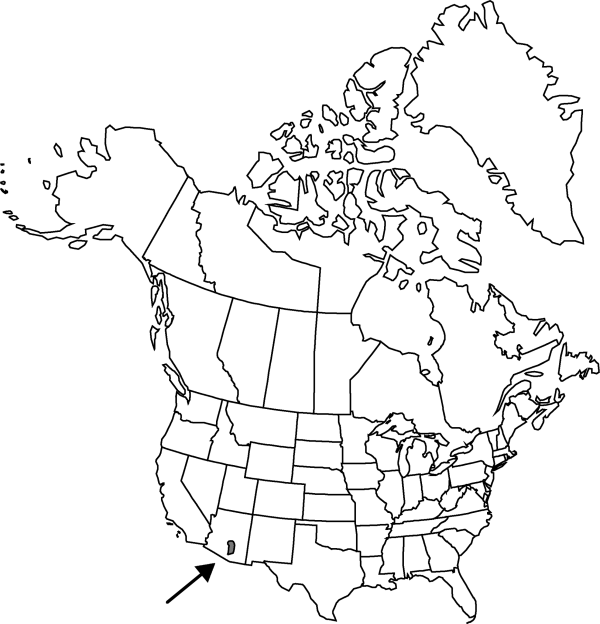Cylindropuntia ×tetracantha
in C. Backeberg and F. M. Knuth, Kaktu s-ABC, 124. 1935.
Shrubs, openly branched, 0.5–1.3 m. Stem segments usually alternate, green to gray-green (or reddish), 5–28 × 0.7–1.4 cm; tubercles moderately prominent, narrowly elongate, 1.5–3 cm; areoles subcircular, 1.5–3 mm in diam.; wool tan, aging gray. Spines (0–)1–4 per areole, in all but proximal areoles of stem segment, usually all deflexed, yellow with whitish to pinkish basal coating, moderately stout to acicular, the longest 1.5–2.8 cm; sheaths whitish at bases to golden at tips. Glochids in adaxial tuft and marginal about areole, yellow, 1–3 mm. Flowers: inner tepals greenish bronze or red to magenta, spatulate- to obovate-apiculate, 10–15 mm; filaments reddish; anthers light yellow; color of style and stigma lobes unknown. Fruits commonly sterile, often proliferating, green, becoming yellow with red blush to red, obconic to obovate-stipitate, 15–23 × 10–20 mm, fleshy, moderately tuberculate; umbilicus deep, 3–4.5 mm; areoles 10–18, a few producing 1(–2) short spines. Seeds tan, angularly subcircular to broadly oval, warped, 3–4 × 3–3.5 mm; girdle broad, lumpy, little protruding. 2n = 22.
Phenology: Flowering spring (Apr–May).
Habitat: Sonoran desert scrub, flats, hills
Elevation: 500-1000 m
Discussion
Cylindropuntia ×tetracantha (= C. acanthocarpa × C. leptocaulis) is an uncommon hybrid; sympatric hybrids long confused with and usually included in C. ×tetracantha involve C. leptocaulis × C. spinosior, which have spineless, reddish, and strongly tuberculate fruits and long-spreading, subwhorled branches, and C. leptocaulis × C. versicolor, which have spineless, reddish, smooth, and enlarged fruits and a less spreading habit.
Selected References
None.
